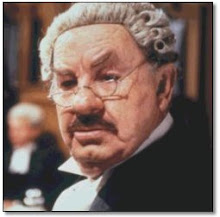CPA's Practicng Law - Again
Attorneys are showing a great deal of anger toward some CPA’s right now. It seems that some CPA’s have taken to practicing law and are getting away with it. They are preparing common legal documents such as corporate organizational forms and filing them for their clients. This is clearly the practice of law.
One prominent attorney in the Oklahoma Bar Association was steamed about the problem this week. He found himself defending clients whose CPA had incorporated them and then failed to make necessary subsequent filings. Another attorney chimed in that CPA’s who form corporations are usually incompetent, especially when it comes to the dozens of subsequent forms and notices that should be filed when a corporation is formed. Another observed that he had special rate for clients who let their CPA form a bare bones corporation for them and then came to him when their bank or floor planning vendors required access to their bylaws, operating agreements, notices and disclosures, etc.
Sometime soon, an angry client is going to sue an Oklahoma CPA for unauthorized practice of the law and when it happens the wrath of God is stored up for that unfortunate CPA. Nearly everyone in the legal profession agrees that an example needs to be made and it is never good to be the “EXAMPLE.” The long knives are drawn in bar circles and it will be a precedent setting case. In the meanwhile, the following may help:
(1) Take the time to explain to your client that they have been poorly served by their non-attorney legal forms provider. Don’t just clean up the mess and let it go. Make sure to explain that it would have cost them less to simply use an attorney to begin with.
(2) Copyright your standard legal forms and pleadings. Every attorney has a carefully developed and maintained collection of forms that he or she uses regularly. These forms represent literally hundreds of hours of work and tens of thousands of dollars worth of education. Then, when a CPA sends you a client to get your forms, copies those forms and sells them to other clients, you can sue for copyright violation as well as unauthorized practice of law and perhaps even theft or conversion without waiting for the client to make up their mind.
(3) Lobby the Oklahoma Bar Association to begin pursuing UPL violators seriously and even using undercover investigators for the worst offenders such as legal forms stores, storefront “legal clinics” that cater to illegal immigrants and tax practitioners who dabble in the law.
(4) Educate you local DA’s office about the UPL problem and encourage them to file criminal charges when appropriate.
A lot of the blame for this mess can be laid squarely at the feet of conservative talk radio and the GOP. The GOP has encouraged lawyer bashing and disrespect for the legal profession as a political strategy in the past several campaign seasons. In turn, there are now almost twenty four hour a day commercials on talk radio encouraging listeners to buy and use stock legal forms they do not understand and frequently cannot even file properly. Like every other facetious argument, this one will eventually run its course and the conservative media is going to have egg all over its face for encouraging its gullible listeners to engage in costly and damaging business practices.

